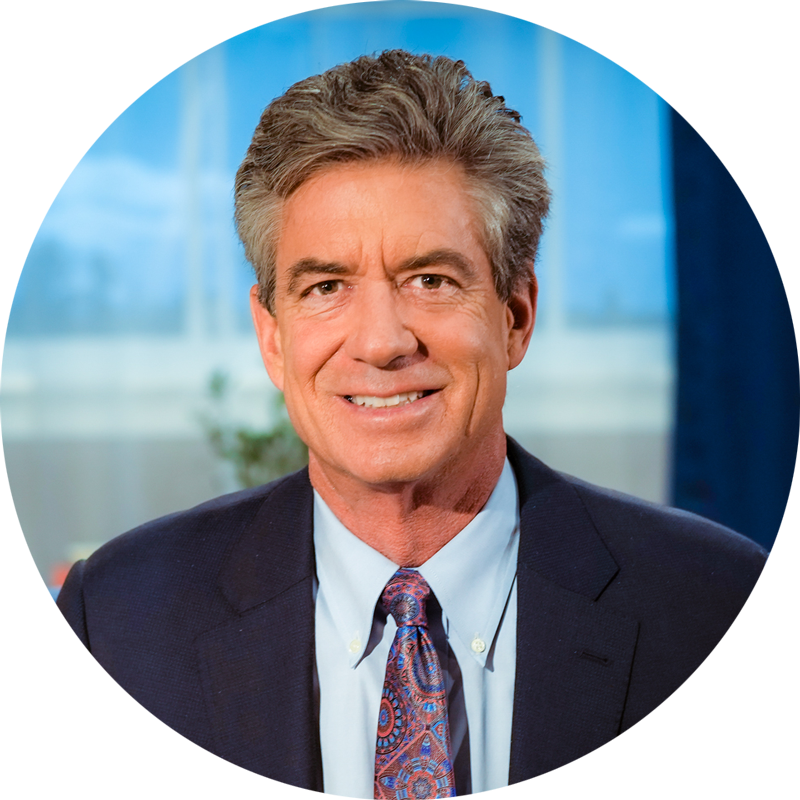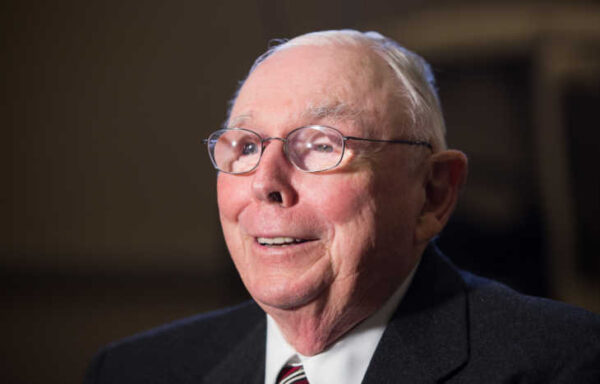How the National Media Makes Americans Poorer
- The national media promotes a narrative that our capitalist system is “rigged,” making it impossible for normal Americans to achieve wealth.
- Today, Alexander Green explains why this is untrue, and how you can wake up, take responsibility and get on your way to wealth.
In a recent column, I pointed out that most Americans fail to achieve financial independence, thanks in part to the “master narrative” peddled by the mainstream media.
That narrative is entirely skewed, grossly out of context, highly partisan and relentlessly negative.
Polls show, for instance, that the majority of Americans believe that poverty is rising, violence is increasing, global inequality is worsening, and our racist, sexist, homophobic and xenophobic nation is in a perilous period of decline.
None of these things is remotely true.
I say that not because I have stories, anecdotes or personal experiences that contradict these claims but because I’ve studied the data.
(Skeptics should feel free to visit ourworldindata.org or humanprogress.org.)
The master narrative has other biases as well.
Notice, for instance, that problems in our society are never the result of individuals making poor choices.
They are invariably due to greedy corporations, a broken system, or people who spent decades working, saving and investing (regularly referred to as “the undeserving rich” or “the fortunate few”).
Soft drink makers and fast-food providers, for instance, are responsible for the obesity crisis. The opioid crisis? Blame pharmacies and drug companies. If the planet’s temperature is rising, attack frackers, drillers, pipelines and meat-eaters.
And if you have no savings or investments, denounce capitalism, the tax code or “structural inequities.”
A January 21 Washington Post article by Christopher Ingraham, for example, carried this headline: “U.S. stocks continue to post big gains, but many Americans aren’t benefiting.”
The Post points out that “Roughly half of Americans own no stock, either directly or via retirement accounts such as 401(k)s… A booming stock market therefore has little bearing on the day-to-day lives of most people.”
The culprit? Bad government policies “in the ’80s and ’90s,” weakened unions, lower tax rates on high-income earners, and the fact that since 1964 wages have “climbed a relatively paltry 852 percent.”
(You don’t often see the word paltry before a figure like 852% but, as my 16-year-old son would say, “Whatever.”)
Who is not responsible for missing the dramatic run-up in the stock market?
Those who chose not to work, save or invest.
I’ll pause here for my standard disclaimer. Those with mental or physical disabilities or tragic circumstances – the folks Ronald Reagan called “the truly needy” – deserve our compassion, not our condemnation.
I support a robust social welfare network for these individuals and their families.
But that cannot possibly describe half of Americans. Millions have simply not lived within their means.
And when your outgo exceeds your income, your upkeep becomes your downfall.
Many who did save were still too fearful to invest. (Thanks, in part, to our mediocre public education system and – again – the relentless negativity of the national media.)
However, there really are no excuses for not investing today.
Investment minimums are too high? Nope. Plenty of mutual fund companies and brokerages now have no investment minimum.
Costs are prohibitive? Wrong. Almost all of the major discount brokers have taken commissions to zero.
Many index funds and ETFs have investment fees so low they are practically zero.
Fidelity Investments even offers mutual funds with no minimums, no commissions and no management fees. This trifecta of zeroes means it is now possible to invest any amount, no matter how small, and pay absolutely nothing.
Accept the worldview promoted by the national media – that we live in a nation in decline with “a rigged system” where the rich get richer and the poor get poorer – and it does nothing to promote your financial welfare.
(It will, however, increase your anxiety, fuel your depression, justify self-pity, and stoke a sense of victimhood and righteous indignation, one that makes even close friends and family pause before putting you on their guest list.)
Does accepting that worldview motivate anyone to study, work, persist, save, invest and compound – and thereby create financial independence?
Not so much.
More to the point – as I said at the beginning – this master narrative simply isn’t true.
No wonder trust in the media is near an all-time low.
In my next column, I’ll show you where to get independent, verifiable data you can rely on – and how to put it to work to meet your most important financial goals.
About Alexander Green
Alexander Green is the Chief Investment Strategist of The Oxford Club, the world’s largest financial fellowship. For 16 years, Alex worked as an investment advisor, research analyst and portfolio manager on Wall Street. After developing his extensive knowledge and achieving financial independence, he retired at the age of 43.
Since then, he has been living “the second half of his life.” He runs The Oxford Communiqué, one of the most highly regarded publications in the industry. He also operates three fast-paced trading services: The Momentum Alert, The Insider Alert and Oxford Microcap Trader. In addition, he writes for Liberty Through Wealth, a free daily e-letter focused on financial freedom.
Alex is also the author of four New York Times bestselling books: The Gone Fishin’ Portfolio: Get Wise, Get Wealthy… and Get On With Your Life; The Secret of Shelter Island: Money and What Matters; Beyond Wealth: The Road Map to a Rich Life; and An Embarrassment of Riches: Tapping Into the World’s Greatest Legacy of Wealth.






